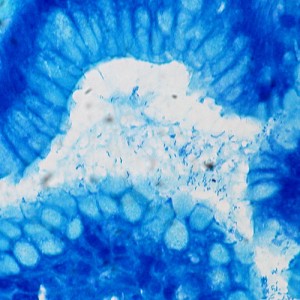If you’ve been diagnosed with vitamin B12 deficiency, you’re probably wondering, “How did this happen?” Unless you’re a vegan or a gastric bypass patient, it’s possible that vitamin B12 deficiency resulted from an autoimmune disorder that causes pernicious anemia.
Vitamin B12 deficiency- what are the symptoms?
Vitamin B12 is essential for maintaining your nervous system, psychological health, and your metabolism. Pernicious anemia causes a wide range of debilitating symptoms that interfere with daily life, and is one cause of B12 deficiency.
Symptoms of vitamin B12 deficiency-pernicious anemia may include:
- Everyday fatigue, despite sleeping well
- Brain fog- confusion
- Impaired concentration
- Impaired memory
- Depression
- Anxiety
- Mood swings
- Irritability
- Painful numbness and tingling in hands and feet
- Tingling or burning sensation in mouth and tongue
- Slower reflexes
- Difficulty walking normally
- Stomach upset
- Infertility or frequent miscarriages and stillbirths
Vitamin B12 deficiency- what are the causes?
There are many reasons why an individual may develop vitamin B12 deficiency. First off, if you eat a diet rich in sources of vitamin B12, including beef, poultry, fish, and milk, then you should not under any normal circumstances become deficient in vitamin B12 levels.
- Following a vegan diet is a major risk factor for vitamin B12 deficiency. Vitamin B12 occurs naturally in animal-based foods, the richest sources being liver, shellfish, and many lean meats. Unless you supplement your vegan diet with vitamin B12, then you will eventually become depleted, as few plant-based products are infused with substantial amounts of vitamin B12.
- Certain lifestyle choices may interfere with vitamin B12 absorption, including stomach or intestinal surgery (such as gastric bypass), alcohol abuse, and using certain B12-inhibiting medications (such as metformin or protein pump inhibitors [PPIs]).
- Gastrointestinal diseases, in addition to other diseases that include GI malfunction, may cause vitamin B12 deficiency. These include Crohn’s disease, ulcerative colitis, celiac disease, fibromyalgia, migraine disorder, and chronic fatigue syndrome.
- The elderly do not produce enough stomach acid to digest vitamin B12 fully, so they are a separate risk group for vitamin B12 deficiency.
- If none of the above-mentioned risk factors pertain to you, then it’s entirely possible that you suffer from an autoimmune disorder that prevents you from absorbing vitamin B12 from dietary sources. Autoimmune pernicious anemia may take decades to develop and typically goes unnoticed until you reach your thirties or forties.
Vitamin B12 deficiency from autoimmune disorder
In order to get vitamin B12 into your blood supply, you need certain digestive enzymes to help you access vitamin B12 from the foods you eat. Intrinsic factor is that necessary enzyme that your body uses to absorb vitamin B12.
For some people, certain antibodies interfere with intrinsic factor, causing your immune system to malfunction. If you have one of the antibodies that interfere with vitamin B12 absorption, then you will never be able to digest vitamin B12, no matter how many hamburgers or fish dinners you eat in your lifetime.
“I’ve heard of the X Factor and Fear Factor…But what’s Intrinsic Factor?”
Three types of antibodies cause vitamin B12 deficiency- pernicious anemia. They include:
- Parietal cell antibody, which prevents the production of intrinsic factor in the stomach.
- Intrinsic factor antibody, type 1, which prevents the bonding of vitamin B12 to intrinsic factor. About 50%-60% of pernicious anemia patients have this type of antibody.
- Intrinsic factor antibody, type 2, which allows bonding of vitamin B12 to intrinsic factor, but prevents bonding with receptor from the ileum (the bottommost part of your small intestine).
If you’ve been tested for vitamin B12 deficiency, it’s important that you also take a blood test for the pernicious anemia antibody. Many doctors overlook this important screening, so you might need to ask for it.
Vitamin B12 deficiency autoimmune disorder requires vitamin B12 from non-oral sources, such as vitamin B12 injections, which are available only through prescription.
Please tell us…
Have you tested for vitamin B12 deficiency, but not for the intrinsic factor or parietal cell antibodies?
If you get vitamin B12 shots…do you still experience pernicious anemia symptoms like fatigue, memory loss, brain fog, and nerve pain?
Questions or comments? Please let us know!
Share with your friends!
If you found this helpful, then please share with your friends, family, and coworkers by email, Facebook, or Google+.
Read more about pernicious anemia:
Diagnosing Vitamin B12 Deficiency and Pernicious Anemia: Top 10 Tests
WhichTests check Absorption of Vitamin B12?
Vitamin B12- How much do you need?
Sources:
Symptoms of Vitamin B12 Deficiency
Studies on Antibody to Intrinsic Factor
Images:



